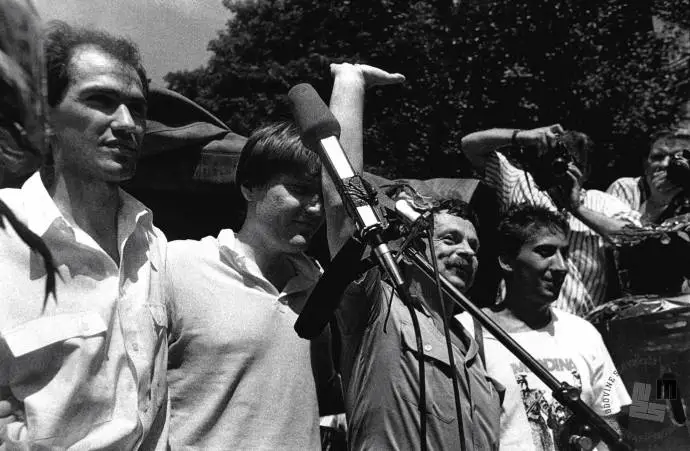The ceremony heard calls for the kind of mutual cooperation that Slovenia witnessed when the JBZT scandal broke out three decades ago, with Pahor saying that "united we stand, and divided we fall."
The president said that the committee had associated Slovenians of different opinions in the fight for human rights, and thus should be an "eternal inspiration to the nation and the state for mutual respect and respect of differences".
Pahor congratulated the committee for its irreplaceable contribution to democracy and independent Slovenia, noting that many believed that the JBTZ process had resolutely facilitated "democratic processes in the former non-democratic state".
The process involved Janez Janša, a journalist of the political weekly Mladina at the time, who was among four people arrested in the spring of 1988 over the leaking of a military document.
Janša later took over the Democrats (SDS) and is about to be named the prime minister-designate by Pahor. Janša failed to show up for today's ceremony, as did Franci Zavrl, another member of the JBTZ quartet (Janša, Borštner, Tasić, and Zavrl).
The central figure of the committee, which was formed on 3 June 1988 and organised mass protests in response to the arrests, was Igor Bavčar.
He went on to become Slovenia's first interior minister and after that an influential entrepreneur, who ended up in prison last year for money laundering and stock machinations.
Pahor initially planned to also invite Bavčar to the reception but changed his mind, fearing this could be seen as controversial.
"Some could use this as an excuse to devalue the importance of what was an historic event," explained Pahor, who also wrote an explanatory letter to Bavčar.
The decision not to invite Bavčar was not welcomed by some members of the committee, who believe that a line of separation should be drawn between Bavčar at the time and Bavčar of today.
According to the newspaper Dnevnik, this is the reason why some prominent members of the committee, including the spouses Tine and Spomenka Hribar and doctor Dušan Keber, have declined to attend.
Committee member Igor Omerza said at the ceremony that the institution had associated various dissident associations and individuals, who had cooperated despite their different views. "This is an important historical example also for today's parliamentary democracy."
The prosecution of the four caused a "storm which is almost unparalleled in Slovenian history", which is why Omerza sees the committee as possibly the most important building block in the democratisation of Slovenia and its independence.
The president's office meanwhile pointed out Pahor was the first president to organise a ceremony marking the anniversary of the committee's formation at the level of the state.
It described the ceremony as part of efforts to preserve the historical memory of milestone events that led to the first democratic election and the decision for independence.







